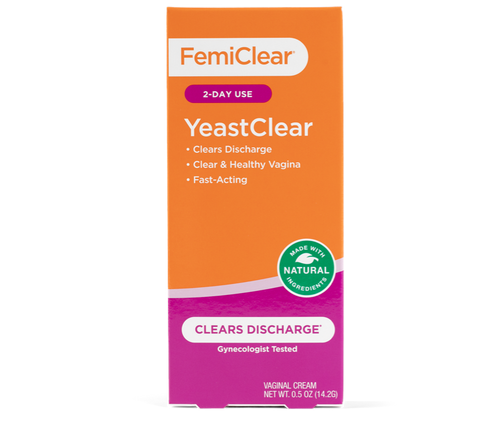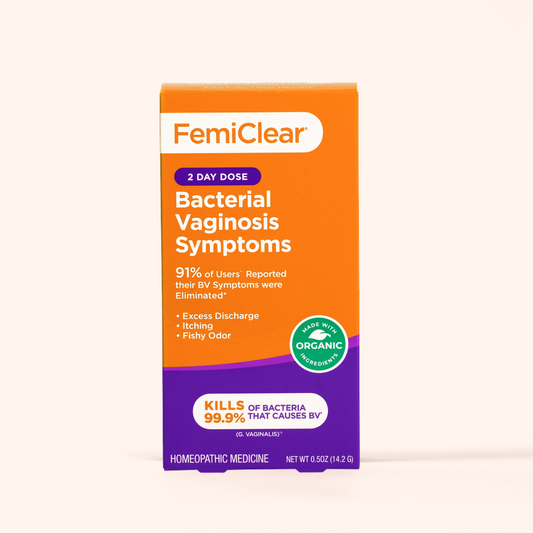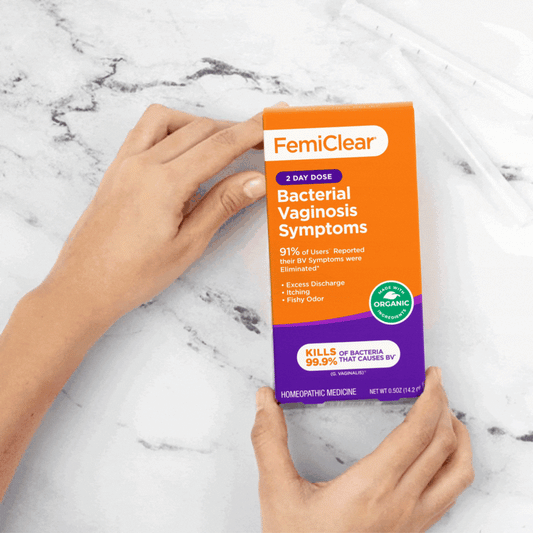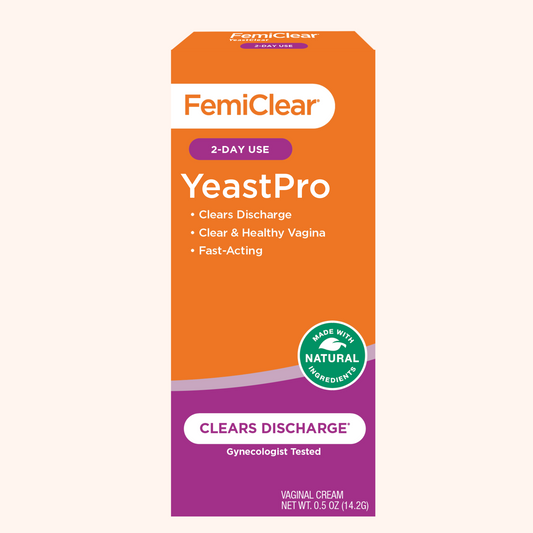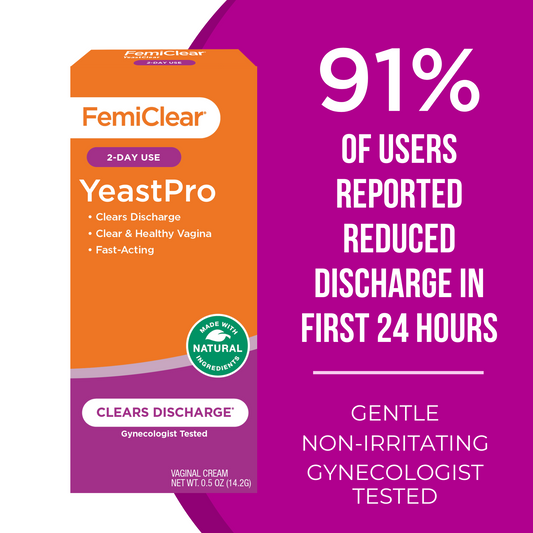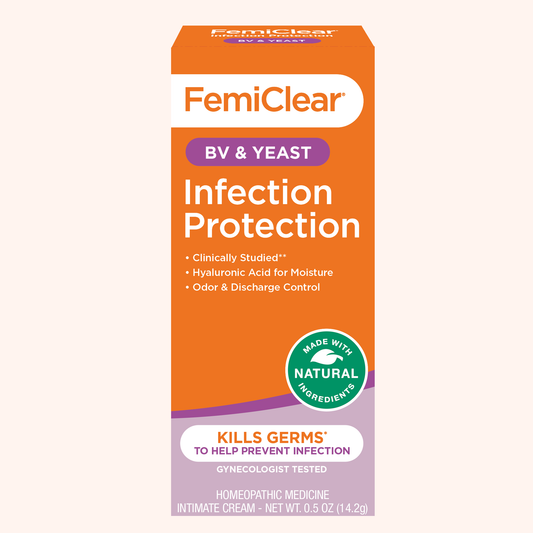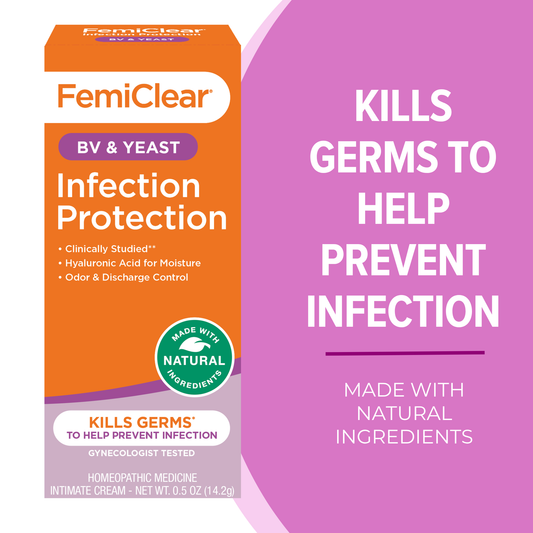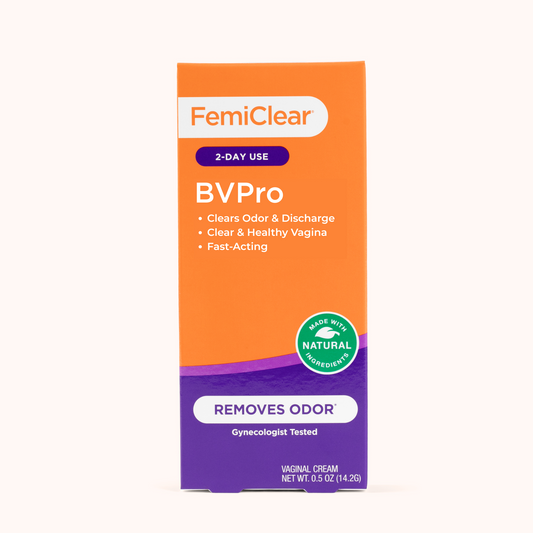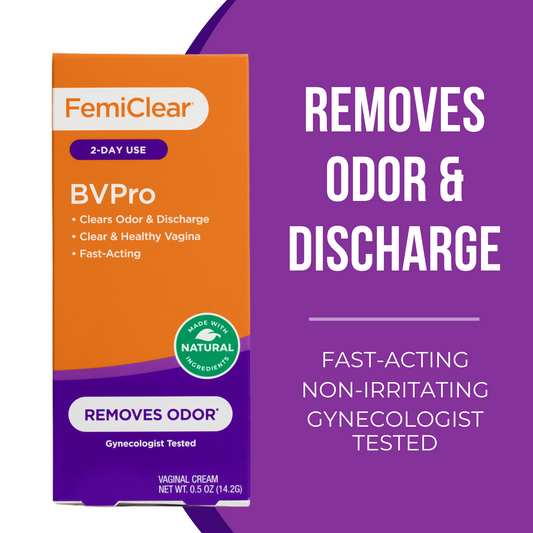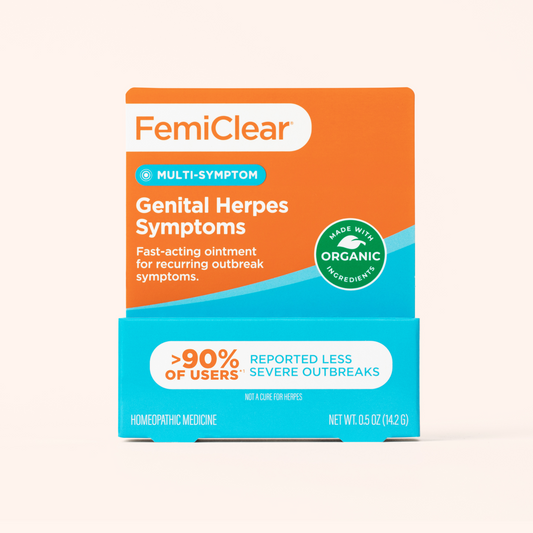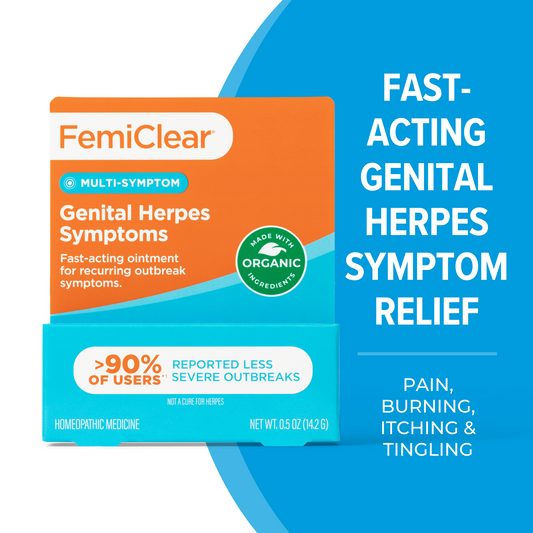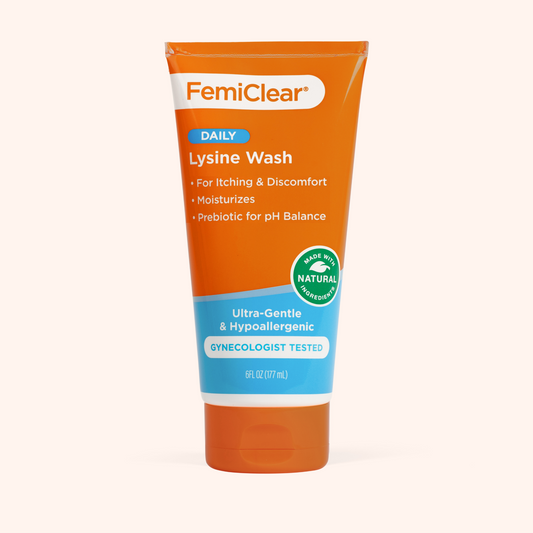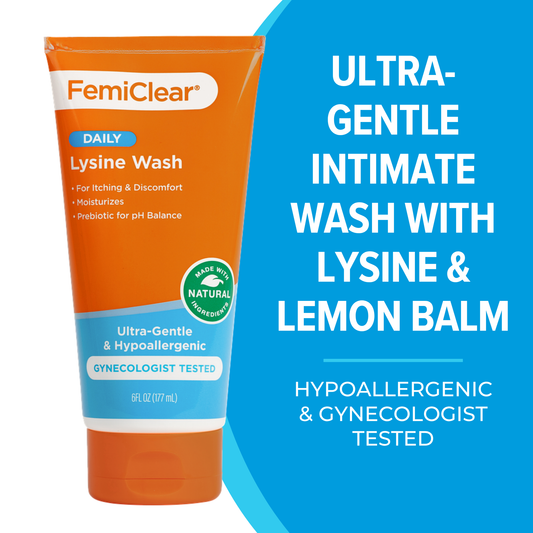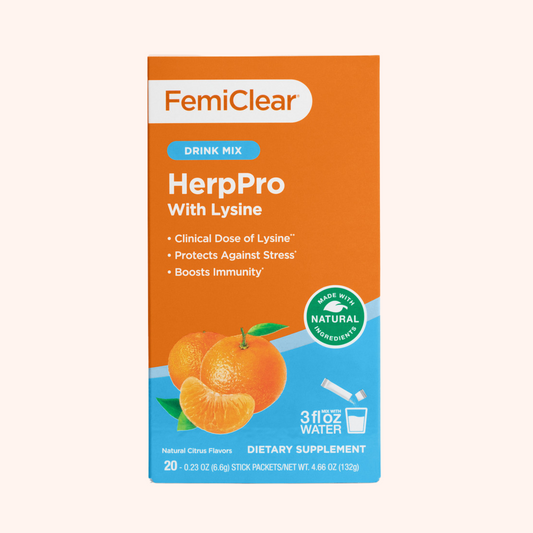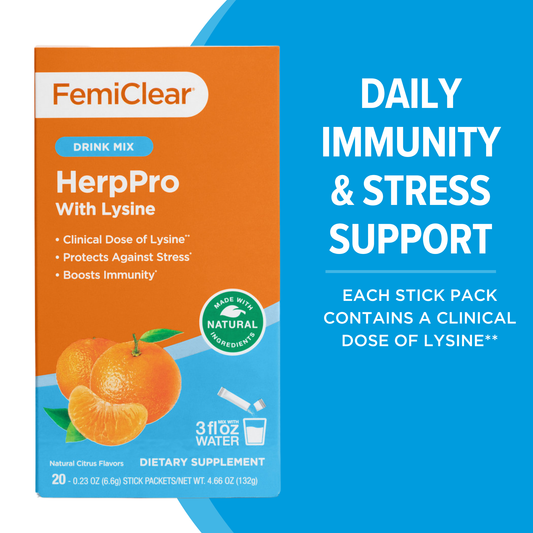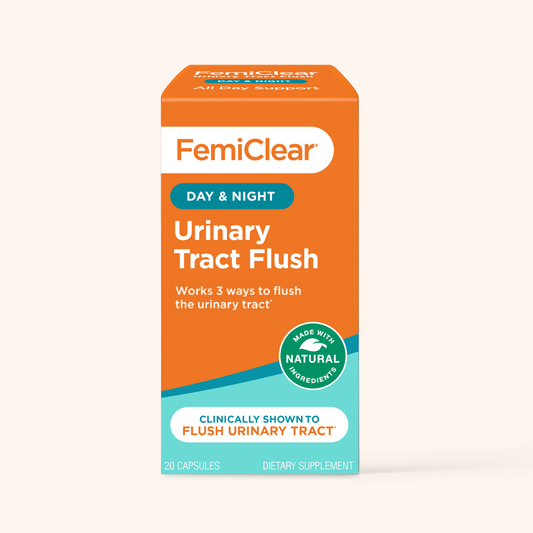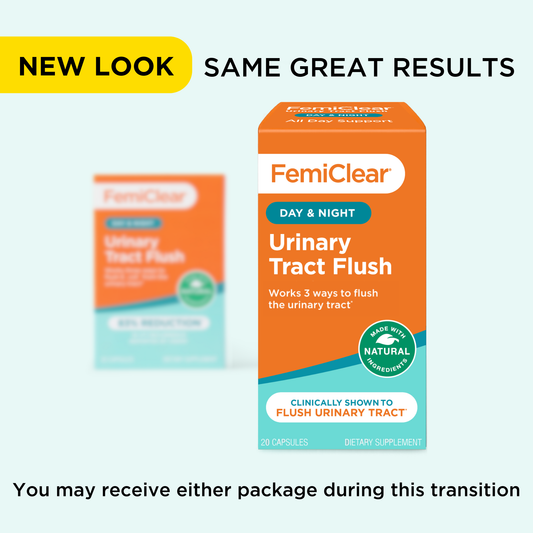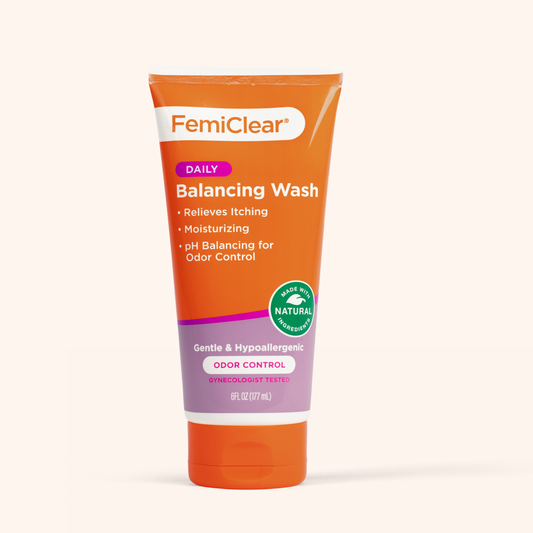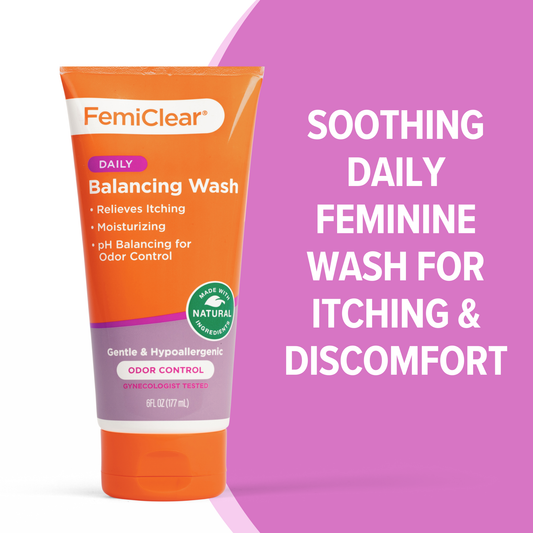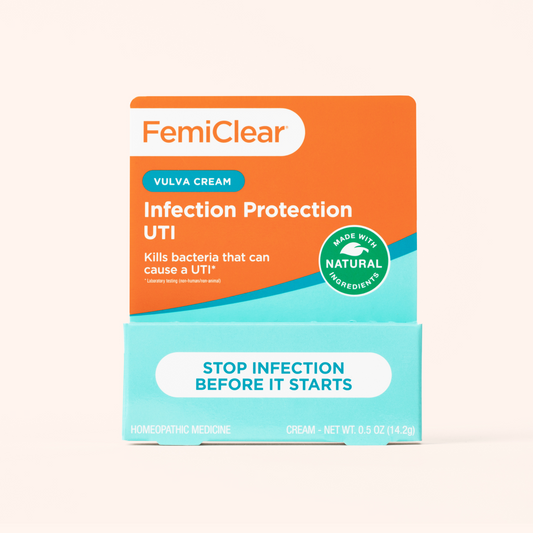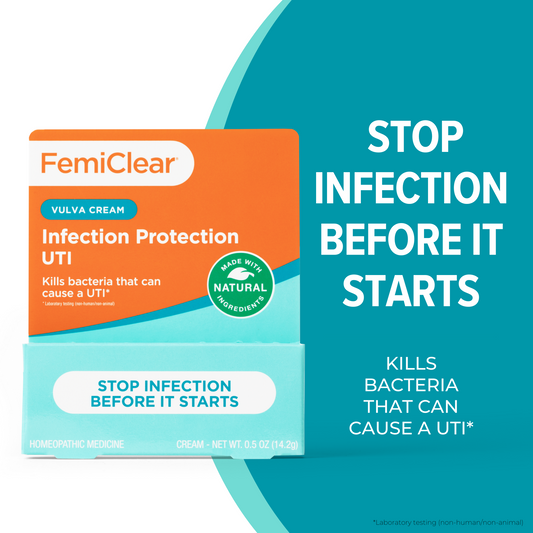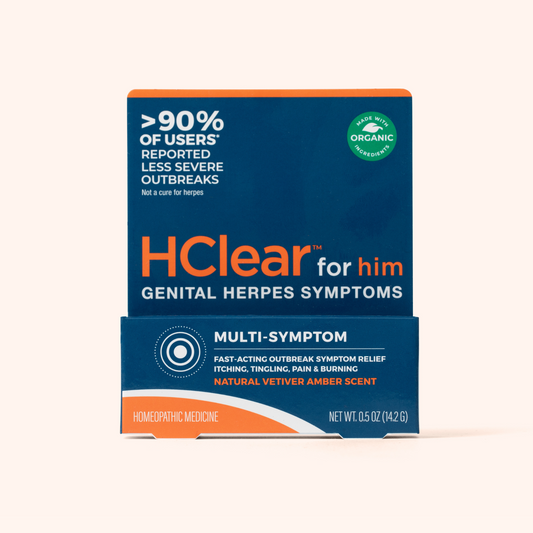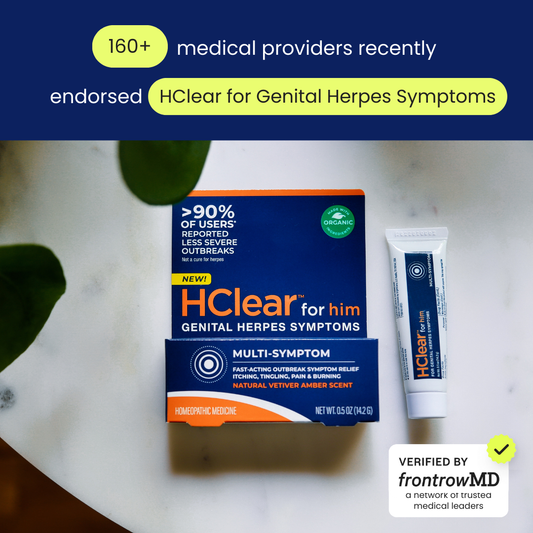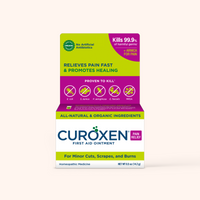Table of Contents
Overcoming Being Embarrassed to go to the Doctor For A Yeast Infection
Aug 08, 2024

Has your discharge turned to cottage cheese overnight? Feeling an itch “down there” that just won’t go away? Trust us, we’ve been there. While you may feel embarrassed by your symptoms, there’s truly no need to be ashamed. Yeast infections, known as candidiasis, are extremely common and highly treatable with over-the-counter (OTC) medication. However, if symptoms persist, there are other treatment options available. Itching to find out how to shake off the embarrassment of going to the doctor for a yeast infection? Keep reading for our tips.
Understanding Yeast Infections
Let’s face it: experiencing uncomfortable symptoms downstairs without knowing why can be embarrassing. However, learning about yeast infections and your symptoms can help alleviate any shame or anxiety you might be feeling.
If you're feeling embarrassed over your yeast infection symptoms, here’s a fact that should ease your mind: every woman has small amounts of candida in their bodies, the yeast fungus that causes yeast infections. In fact, candida can be found not just in the vagina but also the mouth, throat, and stomach. It’s a perfectly healthy yeast that lives alongside other “good” bacteria in the body (known as your microbiome).
However, sometimes this healthy balance of bacteria in your vagina, called your vaginal microbiome or flora, becomes imbalanced. This can happen for plenty of reasons; hormonal changes during pregnancy or your menstrual cycle, having diabetes or being immunocompromised, having sexual contact, or even wearing a bathing suit for too long can all disrupt your vaginal flora. In these cases, candida growth in the vagina can go haywire, leading to a yeast infection.
Yeast infections can cause a range of uncomfortable symptoms you might not feel like shouting from the rooftops (or telling your doctor). Some symptoms include:
- Vagina burning and/or itching
- Thick, white, and/or clumpy discharge resembling cottage cheese
- Pain during penetrative sex
- Pain during urination
- Redness
- Swelling around vaginal area
While uncomfortable, it’s important to note that yeast infections are neither an STD (sexually transmitted disease) nor contagious. Moreover, they are easily curable with prompt treatment, which we’ll cover in the next section.
Self-Care and Home Remedies
Here’s the good news: with basic treatment, most yeast infections clear up without the need for medical professional intervention.
The most convenient option for yeast infections is using an over-the-counter antifungal medication product available at any drugstore. They come in creams, ointments, ovules or suppositories. The traditional OTC options include synthetic antifungal active ingredients like miconazole, tioconazole, or terconazole. FemiClear, a newer player in the space, uses all-natural and organic ingredients that provide fast relief.
If you’re feeling hesitant about buying medication in-person, equally effective yeast infection remedies are available online. With any of these options, yeast infection symptoms should clear up between 3 to 7 days.
In the meantime, there are steps you can take to reduce your symptoms as much as possible. First, it’s best to abstain from vaginal or oral sex and to avoid tampon use while symptoms are present. Doing so helps avoid friction which can further irritate the affected areas, prolong healing, and exacerbate symptoms.
Second, we know yeast infections can be an itchy situation, but it’s important to try your best not to scratch. Itching not only irritates the skin and leads to more itchiness, but it can also break the skin, inviting germs and further infection. Instead of scratching that itch, opt for an over-the-counter product that can calm the irritation. (Or use sheer will power, but we suggest the cream).
You can also try natural remedies at home, although these methods are not as effective and can lead to worsening symptoms. Popular at-home remedies include tea tree, coconut oil, apple cider vinegar, boric acid, and plain yogurt.
Protecting against yeast infections is also possible through taking proactive measures. The following practices can help wick away excess moisture and prevent creating an environment where candida overgrowth occurs:
- Avoiding tight pants and undergarments
- Wearing natural fibers
- Promptly changing out of wet clothes or bathing suits
- Washing underwear in hot water
- Eating a healthy, well-balanced diet
- Eating yogurt or taking probiotics to promote healthy bacteria balance
- Avoiding scented feminine products
You can also buy Infection Protection, available at Femiclear, that kills common candida, helping to stop yeast infections before they begin. So long, pesky symptoms.
When to Seek Medical Attention
Yeast infections can typically be treated at home with over-the-counter medication. However, there are some cases where seeking medical attention is best. It may be time for a doctor’s visit if you finish treatment and your symptoms persist more than a week. Severe symptoms like severe swelling, redness, or sores from itching should also necessitate medical attention.
People who are pregnant, have diabetes, HIV, or are immunocompromised should seek professional help if experiencing yeast infection symptoms. In these cases, it is important to get a professional diagnosis and recommendations for treatment.
The best professional to go to for a yeast infection is your primary care physician or gynecologist. Although you may be embarrassed to go see a gynecologist, you can rest assured knowing they are professionally trained to handle these types of conditions. Whatever you’re experiencing, there’s a very strong chance your physician has seen it before (or experienced it themselves!).
Despite your hesitations, it is best to make an appointment and receive proper treatment before symptoms worsen. A doctor or gynecologist can prescribe a stronger medication or recommend alternative treatments. Plus, it is important to confirm that what you’re experiencing is actually a yeast infection, as taking over-the-counter medication can exacerbate symptoms if taken unnecessarily.
At your appointment, your physician will ask you about your medical history. They will then do a pelvic exam where they examine your vaginal walls, cervix, and vulva. In some cases, your physician may do a vaginal swab to collect cells for lab testing. This is more likely if you have recurring yeast infections or symptoms that are resistant to treatment. From there, your physician will suggest prescription-strength medication or offer other recommendations.
Overcoming Embarrassment
For many of us, matters of reproductive health are very personal. This is why experiencing yeast infection symptoms can be embarrassing, especially if you’ve never experienced them before. However, it’s important to remember that yeast infections are extremely common. In fact, 75% of women will get a yeast infection at some point in their life.
Yeast infections are not your fault or a reflection of personal hygiene or cleanliness. Better yet, there are plenty of over-the-counter options available before a doctor’s appointment is necessary. But if your yeast infection symptoms persist and are resistant to over-the-counter treatment, or if your symptoms are severe, professional help is the best next step.
While you may feel a bit awkward, seeking medical attention in these cases is critical. It is important to confirm whether you have a yeast infection and determine if treatment is necessary. If you do have a yeast infection, it is far better to get the treatment you need than to suffer from uncomfortable symptoms.
Talking to a female health provider may help you feel more comfortable when discussing sensitive topics. This is an excellent opportunity to get set up with a primary care physician if you do not already have one. Asking trusted female family members and friends for recommendations is a good way to find a professional who you can trust. A provider who is understanding, a good listener, and nonjudgmental will alleviate your anxieties and ensure a positive experience.
When you go for your visit, being upfront and telling your doctor that you’re feeling embarrassed or nervous will inform them that you may need extra support throughout your visit. You can break the ice by starting with the following phrases: “I’ve never told anyone this,” “This is uncomfortable for me to talk about,” or “I feel nervous to tell you this.”
It may also be helpful to write down your symptoms so you have a point of reference if you’re feeling flustered. You could even give the doctor your list if you’re feeling too uncomfortable to say your symptoms out loud. Bringing a trusted loved one may also help you feel more comfortable.
Despite feeling embarrassed, it’s essential to be honest with your doctor. Sharing all of your symptoms and answering your doctor’s questions truthfully will help you get the treatment you need to feel better. Remember, your doctor has heard it before. They’ve likely dealt with similar situations and, if seeing a female doctor, they may have experienced a yeast infection themselves. Lastly, take a deep breath and take it slow. You got this! Your physician is here to help you, not judge you.
Support Resources and Communities
Sometimes, you just need a safe space where you can turn. If you feel uncomfortable sharing your symptoms with a loved one, a women’s health forum or community may be perfect for you. Forums allow you to share your experiences anonymously and connect with other women for support and guidance. They provide resources and information specifically for women’s health in a judgment-free zone. Some women’s health forums and communities we recommend are:
Conclusion
It is normal to feel embarrassed or nervous about seeing a doctor or gynecologist for a yeast infection. However, there is no reason to feel ashamed. Yeast infections are incredibly common and highly treatable with over-the-counter medication. However, if your symptoms do not improve or worsen with treatment, or if you are pregnant or immunocompromised, it is best to seek medical attention. A physician can properly diagnose your symptoms and prescribe the appropriate treatment. In the meantime, we are in your corner. You can contact Femiclear for questions or check out Femiclear natural remedies for yeast infections.
Aug 08, 2024

YeastPro for Vaginal Discharge | Cream
Relief from Discharge in 24 Hours
Learn More